COVER STORY
In Pursuit of Excellence
The Eleventh India CFO Awards
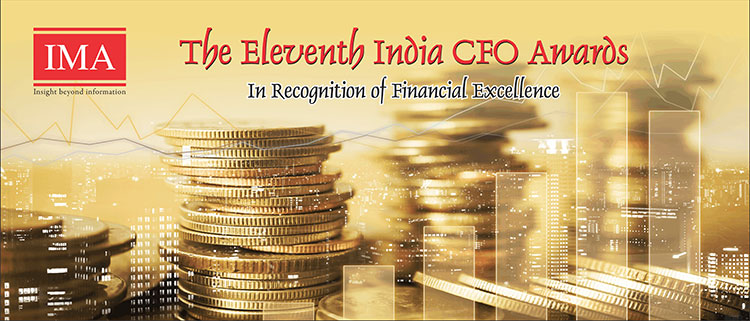
In the last two decades, CFO impact on corporate sustainability has been astounding. Controllers of accounts, bearers of business insight, stewards of governance, and partners to the Chief Executive and to the Board – India’s CFOs are all that, and more. Whilst stakeholder expectations may have driven part of this expansion of Finance’s core role, the real cause has been the ability of the CFO himself to take charge of the opportunity created by a high-potential market. In recent times, that potential has been buffeted by strong global volatility as some core ‘givens’ are called into question – on the count of geo-politics and international trade, on that of domestic demand, and on the count of fast evolving regulation. India’s CFO community has risen further in these times to expand impact on the sustainable growth paradigm of industry.
For over a decade, IMA India’s CFO Awards have sought to recognise and reward this unerring pursuit of excellence. If excellence is a habit, then the nominees of these Awards in over eleven editions have reflected its finest expression. Nominees of The Eleventh India CFO Awards stand at the apex of achievement in Finance, marking the most recent statement of an impressive legacy. Over 450 nominations received across eleven categories highlighted the complexity of challenge to enable growth and create global benchmarks of performance in these most unusual of times. And then, they highlighted how it is possible to find opportunity in adversity, to create growth despite headwinds, and to build Finance organisations that respond to the continual, and ever-changing, expectations of regulators at one end, shareholders at another, and an extended employee base at a third.
IMA India is privileged to associate The Eleventh India CFO Awards with SBI Card as our principal partner. We acknowledge equally the support of ACCA as category sponsor for the CFO Award for Excellence in Financial Control.
Whilst the nature of Awards demands a winner, the wisdom expressed through the collective set of nominations has been phenomenal and the Awards shortlists, as identified by our preeminent Jury, a most powerful subset. Finally, the achievements of the winners are a testimony to the finest benchmarks of performance in Finance. These individuals highlight how it is possible to lead change as opposed to being led by it, and the irrefutable fact that in the final analysis, excellence is not a goal but rather, a habit, exhibited each day unerringly, unfailingly.
The Jury of The Eleventh India CFO Awards represents a group of peers, thinkers and experts united on two core beliefs – the power of independent judgement and the need to continually raise the bar for India’s Finance community. This edition’s winners are a reflection of that belief. Their work is as much a testimony to individual achievement as it is to corporate excellence in the organisations they represent.
Each category of the Awards reflects a facet of CFO functioning. The over-arching Awards, for Sustained Excellence in Finance over a Decade and CFO of the Year, represent a composite in many ways, of each of these facets, one over a longer time frame to deliver lasting, sustainable impact for the organisation in specific and the community at large and the other a flashing brilliance that represents the most current best in class practices capable of taking both the firm and the CFO community to its next phase of striking growth.
The Jury of The Eleventh India CFO Awards
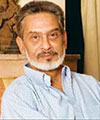
Dr Pronab Sen, Chairman of the Jury, Programme Director for the IGC's India Programme, and former Chairman, National Statistical Commission, Government of India
As a member of the Planning Commission, Dr Sen was principal author of several mid-term appraisal reports, and later, as India's Chief Statistician, he spearheaded a major revision to India's methodology for computing GOP. He combines policy formulation experience in the financial sector with an incisive understanding of business issues.
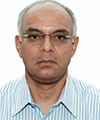
Dr KP Krishnan, Secretary, Ministry of Skill Development and Entrepreneurship, Government of India
Dr Krishnan is leading the charge on the creation of skills at one level, and that magical eco-system called entrepreneurship at the other. Former Secretary, Economic Advisory Council to the PM, Former Additional Secretary (Capital Markets), Department of Economic Affairs & Additional Secretary, Department of Land Resources, Dr Krishnan has been credited with steering major changes in India's capital markets. A policymaker and thought leader with deep domain expertise, he is often sought out for his opinions and insights

Praveen Kadle, Advisor to the Group Chairman, Tata Sons, former MD and CEO, Tata Capital
Currently Advisor to the Group Chairman, Tata Sons, Mr Kadle steered the non-banking finance company, Tata Capital, through its initial decade. He has held various leadership positions at the Tata Group in the last 25 years. He was the Executive Director-Finance and Corporate Affairs at Tata Motors; Vice President-Finance of Tata IBM; Chairman at Tata Hitachi Construction Machinery Co. Prior to his joining the Tatas, Mr Kadle served as the Chief Executive Officer of Garware-Wall Ropes Limited. He has gathered wide experience with well-known Indian companies in the fields of Management, Accountancy, Law, Finance and Treasury.
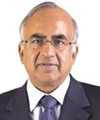
S Mahalingam, former Chief Financial Officer and Executive Director, Tata Consultancy Services
Over the course of his 42-year career at the company, Mr Mahalingam was instrumental in driving TCS to the position it holds today, as one of India's technology giants. As a member of the Tax Administration Reform Commission (TAR C), set up by the government to review the application of tax policies and laws in India, he also comes with vital experience in the field of policymaking.
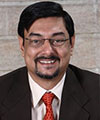
Saumen Chakraborty President and Chief Financial Officer, Dr Reddy's
Mr Chakraborty has over 32 years of experience in both the strategic as well as the operational aspects of management and has played a significant role in the evolution of Dr Reddy's as a global pharmaceutical company. Over the years, he has headed multiple global functions including Human Resources, Corporate & Global Generics Operations, Quality, and IT. During this period, Saumen championed several best-in-class initiatives and global best practices that contributed to the transformation of Dr Reddy's into one of the most respected employers in India and also a 'Great Place to Work'.
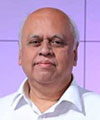
SG Murali, Former Executive Vice President TVS Motor Company and Group CFO, Sundaram Clayton Group
Having played a guiding role in TVS's spectacular growth, Mr Murali comes with over four decades of invaluable industry experience in finance, enterprise risk management, cost management, investor relations, taxation, supply chain and finance controls. Currently, he is an advisor and mentor to TVS Group, and plays an active role as a member of various committees of Bangalore Chamber of Commerce and speaks regularly at government and corporate forums. Previously, Mr Murali worked with HUL for 28 years.
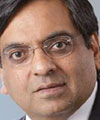
Sanjay Mehta Senior Advisor, KPMG, former Business and Risk Advisory Services Head, BMR Advisors
Prior to his role as Senior Advisor, KPMG, Mr Mehta led the business and risk advisory services for BMR as its co-founder. With over three decades of experience in assurance, business process risk consulting and financial diligence, Mr Mehta has worked with multinationals, Indian business houses and private equity funds across a range of industries. A partner previously too at two of the Big Four consulting firms, Mr Mehta's experience also includes extensive work in fraud investigations and FCPA-compliance. Mr Mehta is known as a thought leader in the areas of Enterprise Risk Management and Corporate Governance.
Excellence in Cost Management
Kedar Upadhye, Joint President and Global CFO of Cipla.
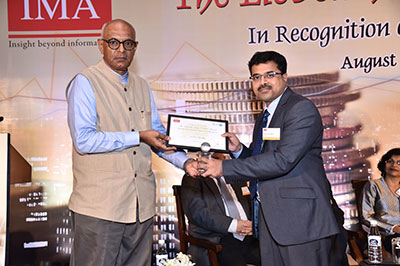
Kedar Upadhye championed the cost agenda in his company to enable a structural shift towards much higher EBITDA levels. This was in response to pressure on EBITDA but also because the firm’s cost base was not aligned with its footprint and sales trajectory. Arguably the biggest cost management and efficiency improvement programme in Indian Pharma over the last 12 months, the initiative spanned procurement, supply chain, SG&A, capital allocation and team productivity. Nicknamed Project Eagle, Kedar’s initiative sought to holistically transform the spend base to ensure sustainability and continuous improvement by strengthening process and building team capability in this core area. It led to cost savings of approximately Rs 500 crores in one year from ideas farmed across the firm. Eagle was led centrally by Finance and importantly, is now in the process of institutionalisation at Cipla – ideas generation for the next phase is underway and a funnel of over Rs 150 crores has been generated.
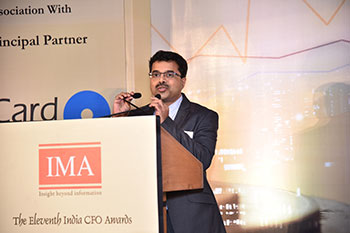
There was an increase in core business margins from sub-14% to 19% in FY18 – that too in a sector that is under immense regulatory and pricing pressure. Till June 2018, the P&L impact was in excess of Rs 330 crores. Kedar has ensured continued and robust finance evaluation to ensure that all savings are realised in the P&L.
The initiative looked at all key cost levers and adopted a TCO approach to identify opportunity across procurement, traded products, indirect spend, services like insurance and logistics, corporate administration operations, optimisation of API formulations, quality improvements, working capital and CapEx optimisation,– and business model calls. Operating models across manufacturing, R&D, supply chain and marketing were shifted including new partnerships with third parties and the enhanced use of digita and big data analytics. The focus on optimisation has also involved a comprehensive culture and people agenda to ensure an ongoing focus on sustainable, profitable growth.
Excellence in Talent Management
Sugata Sircar, CFO, Greater India and Country Finance Partner of Schneider Electric
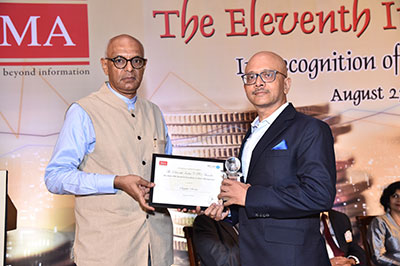
Schneider Electric is a widely diversified business, which has grown strongly through multiple acquisitions, both global and domestic, in the last decade. Sugata Sircar changed the structure of the Finance organisation to enable true business partnership by Finance, with Finance team members identifying the drivers of performance management in each business and providing ideas both at the customer end and for internal efficiencies that are then implemented. Despite a complex bouquet of group companies, key inputs are provided concurrently to business today and cross-selling across businesses is now a reality on the back of this insight. Finance leaders today provide inputs on business mix to achieve P&L targets, monitoring this at the level of opportunity and order to ensure predictive guidance.
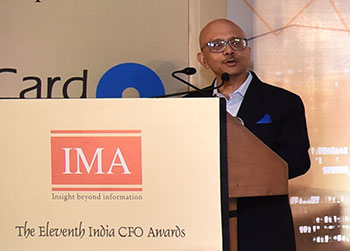
This level of alignment and ownership by Finance organisation has contributed to high double-digit growth that the firm is witnessing. That Finance is a driver is clear from customer solutions being suggested by finance on numerous occasions. In itself, that also reflects the level of empowerment that Sugata has enabled in the Finance team and in the knowledge enhancement that this would have required. Sugata has invested strongly in the creation of a formal Assessment Centre for each member of the team and instituted formal mechanisms of reverse mentoring for himself, investing significant time with younger team members and those with high potential. The Finance team’s culture now centres on driving core finance metrics like risk and P&L management in a manner that business considers them useful and effective.
Excellence in M&A
Sanjay Puria, Group CFO of WNS Global Services
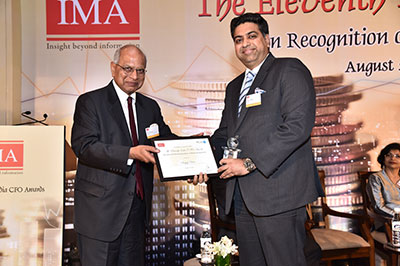
The quality of any merger or acquisition must be evaluated on many parameters – the complexity of the deal, the tangible value created to expected outcomes and the quality of post-merger integration, to name a few. For this Award, the role of the CFO through the process of identification, deal and integration is also key. Whilst the size of the deal is always an element, the related context of the firm and its maturity must also be kept in mind.
Sanjay Puria executed three consecutive, multi-geography, – Turkey, Ireland, China and India – cross-border deals all runnin in parallel within a year. His efforts were commendable most so because no intermediary was used for one of these transactions. Rather than opportunistic gains, each deal for assessed for strategic benefits critical to the sustainability of the global player. Sanjay led the process of asset identification, strategic fit assessment and critically, negotiation prior to execution.
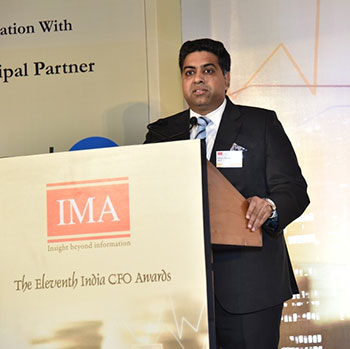
A collaborative approach that saw Sanjay take on board key players in acquired entities including extended vendor eco-systems was visible. A mix of cash and debt at very competitive rates underlaid the process. Each acquisition had a strong rationale, diversified geographic presence and bolstered its niche position. The deals have created strong growth in market capitalisation – the firm’s share price has risen 57.5% compared to low single digit numbers for the market at large. Revenue per employee has grown 21% in FY18; 28% revenue growth is at 28% in fiscal 2018.
Excellence in Financial Control and Compliance
Subir Purkayashtha, Director Finance of GAIL
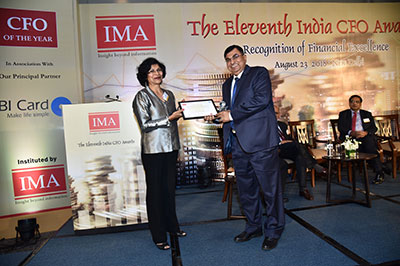
Subir Purkayastha is CFO of one of India’s largest businesses in a sector that has seen extreme volatility in recent times. GAIL’s pedigree may insulate it to some degree from wider swings but it is also subject to the most intense scrutiny from both public regulators and private markets. Subir has driven multiple projects centred on cost optimisation, loan refinancing and commodity hedging in a very large, globally exposed business. The focus on financial control has been paramount during this process of efficiency enhancement. Despite the size of the gas major, both Ind-AS and GST implementation were executed to deadline.
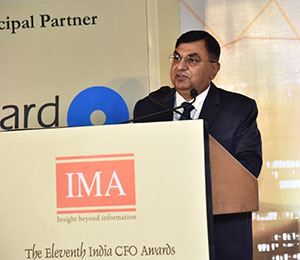
The Jury’s insight in his selection involved views from high levels of government. The mandated Internal Financial Controls systems developed are of the highest order and sit in complete alignment with the organisation’s renewed Risk Control Matrix. Internal Audit teams are now integral to every operation across the vast, decentralised structure to ensure predictive insight and decisions. GAIL has received ‘Nil’ comments from the Comptroller and Auditor General of India for the past 8 years running.
Subir is also pivotal to ensuring guidance to the board in terms of strategic decisions. Responsible for the entire gamut of financial management including financial resource mobilisation (both domestic and global), budgetary controls and investment decisions. His engagement with the Board as well as with analysts and external fund managers has ensured the highest levels of transparency. Proactive outreach to external stakeholders has been maximised in Subir’s tenure to ensure investor confidence. In turn, that requires the most meticulous understanding and documentation of company affairs, financials and compliances.
Excellence in Risk Management
Sriram Gopalakrishnan, CFO of Mahindra Comviva
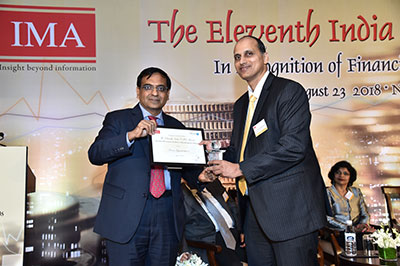
Sriram Gopalakrishnan hails from a business that draws the higher share of its revenues from developing countries. Multiple geographies and a diversified business portfolio open up the firm to risk ranging from treasury to contract to local compliances in labour and entity. The business is relatively small but with a large global footprint. Managing compliance risk across various jurisdictions (50 across the world) from India with low budgets and high attrition given a difficult operating environment is illustrative of a complex context for acehivement.
Difficult market realities have seen Mahindra Comviva run multiple acquisitions in recent times, raising the element of risk across the risk spectrum. Businesses were acquired in countries like Brazil and in business verticals like analytics to build greater competitive capability.
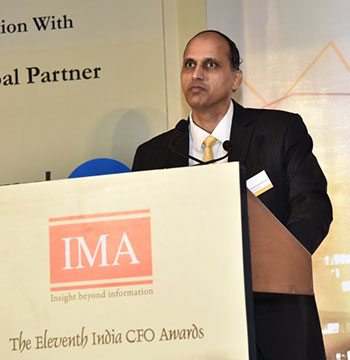
Entity risks in 50 jurisdictions are managed effectively with a constant circle of pro-active audit and prioritisation. Given the fact of product billing on revenue share models or transaction based billing, Sriram took the call to establish Permanent Establishments in several countries. A business necessity demanded nonetheless the greatest care and focus on local compliance and governance models, itself integral to the risk mitigation framework. Sriram’s model contains continuous assessments of probability and impact with an appropriate response mechanism.
Invoicing is in several local currencies for revenue share contracts (most of these are in Africa) and repatriation at desired profitability levels has been possible despite great volatility of the INR and other currencies against the USD (both ways). Currency and treasury management is effectively undertaken with a complex yet transparent set of systems and forward covers are judiciously brought into play
24 international subsidiaries and several tax assessments in various countries including in Europe and Africa are managed with a lean team. There has been hardly any increase in Finance and compliance headcount even as the business has expanded rapidly with acquired entities being integrated across the world. Transfer pricing is an area of key focus given the exposures of the firm. Internal Financial Control tests are passed without exception and without the use of any external consultants.
Excellence in the Use of Technology
Bibek Agarwala, CFO, Raymond Lifestyle
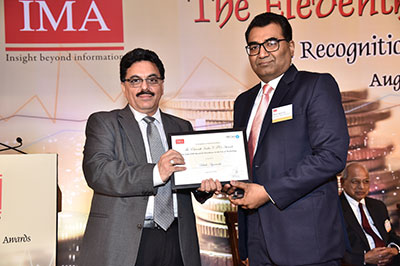
Bibek Agarwala has driven a systems- centred approach in a large, geographically-spread legacy business spanning 370 cities and over 2,000 points of sale. Traditionally in retail, technology has typically played a greater role in the marketing side or in factory operations. Bibek’s efforts have led to very high automation levels using the latest technologies and maximising efficiencies in procurement through eAuctions at one level and digital experience at the other. This shift to a technology and automation-oriented business was executed on multiple planes with procurement flows through a dedicated portal (including RFQs and eAuctions), a CapEx work-flow system with inbuilt KPI and Authority Metrics, the use of IoT for electricity usage and mobile applications for employee experiences on expense approvals, travel bookings etc. All claims processing is now fully digitalised with built in controls for direct processing in SAP.
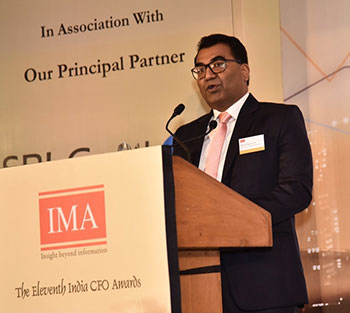
A detailed BI suite for sales and distribution with full line profitability and analytics using BI was rolled out before GST. GST itself was executed from 1 July 2017 with over 10,000 customers and vendors and across 1000+ stores.
Forward thinking mindset is also reflected in the investment into 3D printed accessories as a nascent business line for the Apparal business. The SAP Road map for the business is ready through until 2022. Bibek has now initiated debate on using the current PoS as a source of consumer journey and experiences rather than only billing. Using machine learning, analytics and AI, the intent is to ensure decision-making and create profit centres in each PoS. Work on an omni-channel approach in light of a customer that today seeks ‘fulfilment anywhere’ is also ready for rollout by the end of the year.
A shift from legacy fragmented systems to a Shared Services and Centre of Excellence model have been executed. The finance and procurement SSC paid back its investment in less than a year of operation with reduced manpower and processing cost. The Finance office itself has been transformed in every arena from receivables, treasury, book closing and SG&A. The results of a near doubling of productivity in many of these areas is resultant.
Each investment is examined by Bibek from the perspective of RoI. Whilst financial metrics are key, other elements of compliance improvement and future readiness carry equal weightage.
Excellence in Restructuring Capital
TV Karthikeyan, CFO, L&T Infrastructure Development
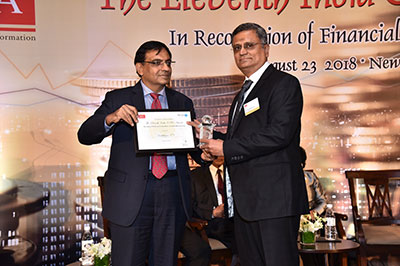
TV Karthikeyan is CFO in a sector that demands long-term, patient capital and has seen huge volatility after a long period of decline, in recent times. He created India’s first privately placed Infrastructure Investment Trust that saw over 55% of the funding from global investors. The Trust will act as a platform to unlock the value of projects and infrastructure in India and churn capital in hits portfolio. Debt to the tune of Rs 3,350 crores was retired. There is an improvement in EBITDA to interest ratio from 1.23 in FY16 to 1.59 in FY18.
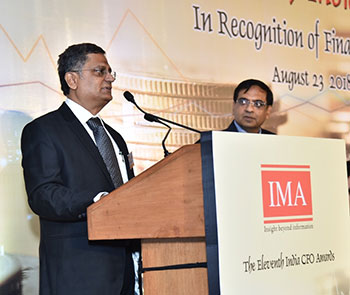
Karthikeyhan also oversaw an internal reorganisation that saw L&T IDPL’s entire shareholding in L&T MRHL transferred to L&T. Various initiatives to recapitalise/restructure debt have unlocked value to the tune of Rs 3,650 crores across three subsidiaries. Illustratively, the issuance of redeemable NCDs at a coupon rate of 8.60% to repay IDFC’s long-term working capital was also executed in the same time frame as were strong debt restructuring measures (to improve cash flows in the case of some projects (over 100 crores unlocked), and reduce interest rates. Increased valuations of independent projects are resultant.
Karthikeyan has conceptualised a unique cash pooling mechanism to make funds fungible between multiple subsidiaries and has guided the finance team to restructure debt of Rs 3,650 crores through optimisation of the capital max, valuation of risk returns tradeoffs and diversifying sources of funds. His efforts have enabled the business in a most difficult sector to continue to invest in growth.
Excellence in a Start Up
Navin Agarwal, CFO of Dream11
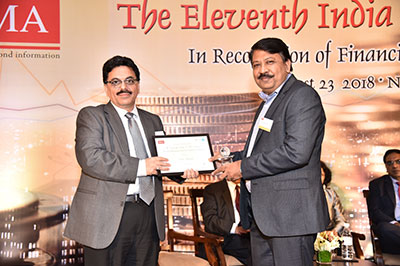
The category ‘Excellence in Finance in a Start-up’ is never an easy decision in any edition of the Awards. The nominees must reflect the defining attributes of a start-up; vintage is an important one, and yet, they must also be able to prove the creation of a winning proposition to which the role played by the CFO has been key. Navin Agarwal hails from a new age sector, and from a business that has reflected astonishing growth – 4x in the last two years; the firm has already surpassed last year in the first five months of this fiscal. The quality of control reflected in Navin’s efforts despite a high volume, high growth business is impressive.
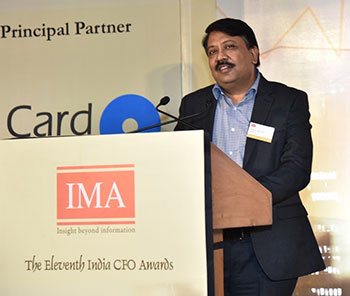
He has managed investor relations with a host of sophisticated, marquis investors commendably, enabling an ongoing cycle of fund raising. In addition, the bid to create a rigorous system of cost efficiency despite huge expenditure in marketing and IT has reflected clearly on the bottomline.
Controls on daily transactions that are undertaken by customers in the millions each day have been key to the sustainability of a fast ramp up given the big risk that such a business carries on this score. Self confessed, Navin is obsessed with data and using it from last mile sources to drive the right decisions on spend and on future projections of growth.
Excellence in Finance to enable a Turnaround
Gaurav Negi, CFO of GE T&D
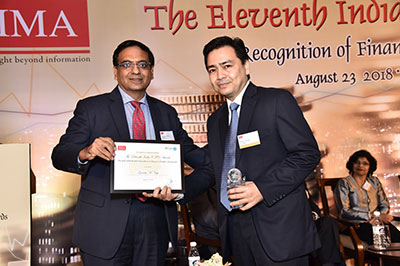
Gaurav Negi hails from an industry, which has been through the most difficult catharsis – one that is still ongoing for multiple players in that sector - power. The specific, individual context for the firm was a merger between two large global players – GE and Alstom, the integration of which coincided with continued challenges in the domestic market. Rising debt and plummeting EBITDA were a reality.
Nominted by GE as CFO of the combined, publicly listed entity Gaurav worked on the integration of the domestic businesses whilst concentrating on combating a growing debt balance and declining margins. He strengthened operations, liquidated aggressive positions in T&Cs, focused on robust interest and tax management and established an ongoing rhythm of business to ensure stringent cost control. The core of the focus was on very strong risk management through extensive stakeholder engagement including with the State Electricity Boards.
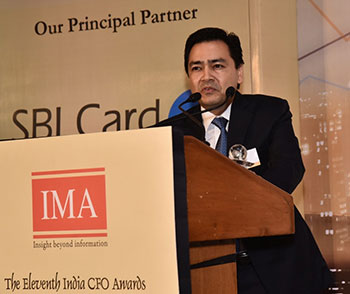
Gaurav began his tryst with the turnaround by first going back to the basics of a close analysis of trends and defining the needed action plan. As with all successful initiatives, the key lay also in relentless execution and monitoring and critically, transparent and extensive communication with key stakeholders. Gaurav drove a quality agenda to ensure selective intake of new orders with proper diligence, strengthening T&Cs and payment security. There was an enhanced focus on execution with emphasis on cost, quality and on time delivery to prevent cost overruns. Capital management at one end and stronger document management (to avoid any financial linkages like tax forms) at the other were other key shifts.
Over the course of the past 12-14 months, GE T&D has moved from peak borrowing of Rs 1,000 crores in 2016-17 to being cash positive by Rs 432 crores in 2017-18. PAT has gone from a loss of Rs 87 crores to a gain of Rs 207 crores. Players from this sector would best recognise the quality of effort and rigour that this turnaround would have demanded. All put together, this turnaround is a story also of risk management just as it is of successful merger integration.
The CFO Award for Sustained Excellence Over a Decade
Jaimin Bhatt, Group CFO of Kotak.
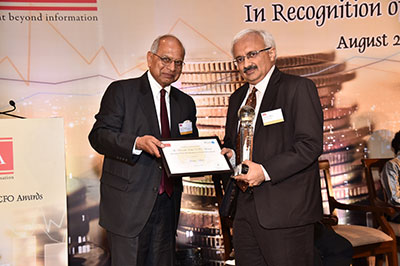
Unlike other categories, this Award relates to a much longer period of time and is one of two Apex awards.
Jaimin Bhatt has been CFO of his company for fifteen years. He was fundamental to the group’s rise to strong market dominance from fledgling status in the early 2000s; from a start up NBFC with a market cap of a 1,000 crores to value creation of Rs 250,000 crores.
The impact of Jaimin’s value creation is visible across all aspects of the business from firm performance, both organic and inorganic, to the most crucial organisational asset of which the CFO is the steward – ethics and governance. As a custodian of governance Jaimin has been key to setting the bank’s philosophies, including laying down that “among others, credit and compliance are non-negotiable”. Jaimin has been a key member of the Uday Kotak Committee, whose recommendations were recently accepted almost without exception, by SEBI.
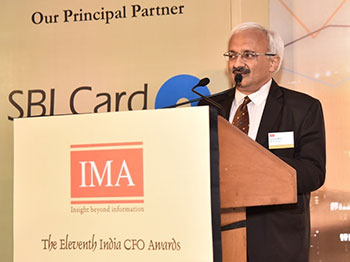
Jaimin’s execution of a stellar set of acquisitions at one level, and the creation of a robust, decentralised yet robustly controlled operating paradigm are all illustrations of phenomenal capacity. Since the RBI came out a set of guidelines which required banks to report if the RBI inspection showed a variance from the bank reported NPAs or provisions, Kotak is possibly the only large bank that has not been required to report divergence on this front since the concept was brought in.
Most important of all, Jaimin has stayed the course, reflecting rising capability, but also continued commitment with an eye on one goal – the sustainability and expansion of a strong, highly regarded organisation. With market share of about 2% of the Indian banking industry, Kotak is the second highest among all banks in terms of market capitalisation.
The CFO of the Year
Gopal Mahadevan, CFO of Ashok Leyland
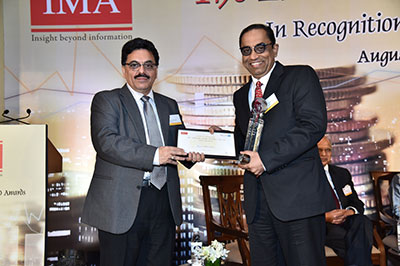
In each edition of the Awards for the apex Award of CFO of the Year, the Jury seeks to determine how a CFO is stepping ‘outside the box‘ to strategically partner the Chief Executive. They evaluate:
- How the nominee has performed and achieved outside the traditional role of a CFO;
- The extent of partnering offered to the Board; and
- The ability to undertake new initiatives, their success and impact on the company.
In the 2018 edition, the Jury was impressed by the role of Gopal Mahadevan in leading fundamental transformation in the company that he has been CFO of for the past five years.
Little is more illustrative of the quality of impact of this year’s CFO of the Year than the fact that he was in the top three shortlisted CFOs in five of our eleven categories. His impact has been on every aspect of operational excellence – three acquisitions in the last year, each of whom has already yielded value, strong cost management paradigms that carry forward this CFO’s relentless drive to sustain profitable growth. This, on the back of a five year ago-reality that saw the firm cash strapped and facing imminent decline.
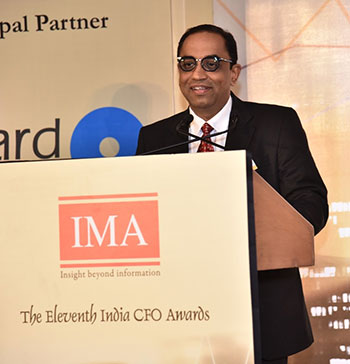
Today, it is India’s fastest growing CV company with double-digit EBITDA for 12 of the past 13 quarters, negative working capital and ROCE that is supra-25%. Net cash stood at Rs 3,000 crores as on 31st March 2018. Ashok Leyland is today the highest margin CV company in the country. Stock prices have reached an all-time high of Rs 167/share in May 2018 – leading to a market cap of Rs 49,000 crores.
Gopal’s impact on the firm is not just on elements core to the CFO’s role – cost, risk liquidity/funding management and margin maximisation, but on identifying opportunities within the business. Today, he is additionally responsible for the Customer Solutions business of Ashok Leyland. Gopal has questioned status quo and pursued outcomes relentlessly, unselfishly, doggedly, with one end goal – to return the organisation to profitable growth as the first phase. And now, to ready for a future that promises huge opportunity because today, because of his efforts and the partnership created with his Chief Executive and Board, the risks for this firm are on the upside. Fortune will favour the prepared.
All said and done, the winners of The Eleventh India CFO Awards, and in many ways, the shortlist of forty eight from which this edition’s final group has been elected, epitomise future-focused leadership. As firsts among equals, they stand for the ability to change standard paradigms, to go beyond themselves to deliver categorical business impact, and at the same, to create robust Finance organisations from among whom, India’s Finance leaders of the future will also be born. They are exemplars of excellence. They stand for the ability of individuals to carry teams and organisations forward with them, not always by leading from the front, but sometimes, by being the wind beneath the wings of their Boards, partners and Chief Executives. In every case, they have created value and established new benchmarks of performance. We salute them.
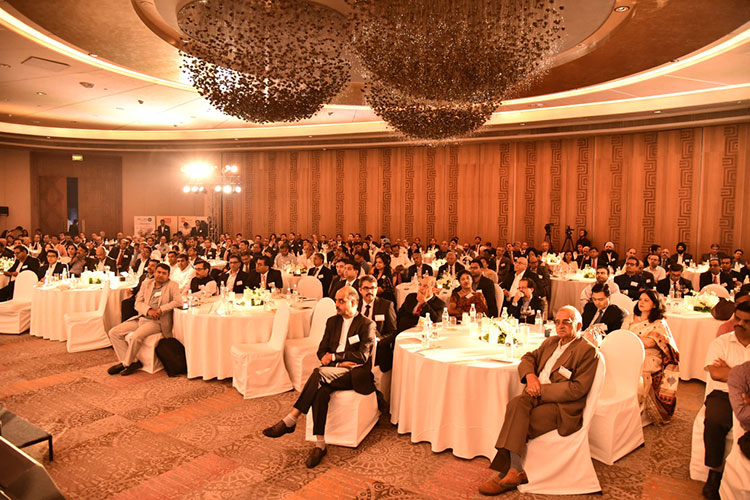
 It is hard to say whether a trade war between America and China will actually play out with the viciousness that some predict.
It is hard to say whether a trade war between America and China will actually play out with the viciousness that some predict. As the ongoing trade wars demonstrate, geopolitics now holds primacy over business performance...
As the ongoing trade wars demonstrate, geopolitics now holds primacy over business performance... ‘Adaptable’, ‘curious’ and ‘passionate’ are some of the qualities that characterise Francois de Thomasson, CFO, South Asia,...
‘Adaptable’, ‘curious’ and ‘passionate’ are some of the qualities that characterise Francois de Thomasson, CFO, South Asia,... The digital age is overwhelming in the scope of change it is engendering. That change is silent, and it is fast. It has overtaken how we live...
The digital age is overwhelming in the scope of change it is engendering. That change is silent, and it is fast. It has overtaken how we live...  The advent of blockchain, in the view of believers, will be more transformative than the Internet. It will enable disintermediation and allow for direct interface...
The advent of blockchain, in the view of believers, will be more transformative than the Internet. It will enable disintermediation and allow for direct interface...  Born with a rare muscular disorder – arthrogryposis – Nipun Malhotra is bound to a wheelchair for life.
Born with a rare muscular disorder – arthrogryposis – Nipun Malhotra is bound to a wheelchair for life. The CFO’s role now extends well beyond control, finance, and compliance. Many play a decisive role...
The CFO’s role now extends well beyond control, finance, and compliance. Many play a decisive role...